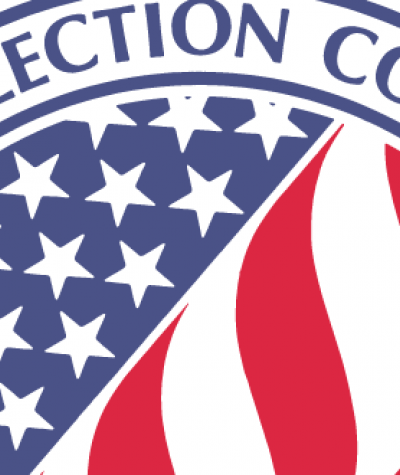Now is the time for a fight over the do-nothing Federal Election Commission (FEC). While President Obama missed a golden opportunity in his State of the Union address to announce that he was sending five names to the Senate for confirmation to the FEC, he should do so now.
All of the other reform measures he cited in his speech depend on Congress moving first. The one action in this area he can unilaterally take is to nominate new commissioners — individuals from both parties who will place upholding the law above partisan or ideological loyalties.
So why should he pick this fight now?
The 2012 elections are heating up and supposedly “independent” super-PACs run by close associates of the candidates are running amok, spending millions on negative advertising and doing the candidates’ dirty work. Millions of dollars are being funneled into the elections with the capability of distorting election outcomes. Many super-PACs have moved back their filing dates until after the completion of crucial primaries so the voters won’t know where the money is coming from. And tax-exempt 501(c)(4) groups like Crossroads GPS are spending millions on attack ads whose sponsors will never be revealed to the public.
While the courts did plenty to create this mess with the rulings in the Citizens United and SpeechNOW cases, the FEC bears much responsibility for making a bad situation disastrous. Enforcement of federal campaign finance statutes has been brought to a halt by ideologues putting their personal philosophies above enforcing the law. As a result, the FEC is AWOL.
Should the president at long last send names to the Senate for the FEC, the polarized Senate might not garner the votes to confirm them — and even if it could, Senate Minority Leader Mitch McConnell (R-Ky.) will likely filibuster.
But the fight offers an opportunity to have this critically important decision aired before the public. The two views of the current situation can be presented and debated: One sees a broken system that allows millions of dollars in interested money, at times from anonymous sources, to pour into the process and affect the outcome of elections; the other maintains that a system that encourages the buying of access and influence by wealthy interests isn’t a problem, and that money and speech are the same.
Of course, campaign finance is not an easy subject for Obama. His reelection team is raising money hand-over-fist, and former administration officials have formed a pro-Obama super-PAC. While he made support of campaign finance reform a big part of his message in the 2008 campaign, at the same time, he became the first major party candidate to completely opt out of the presidential public financing system.
Unfortunately, once in office, it has been all talk and no meaningful action in the one area in which he does not have to wait for Congress — nominating new FEC commissioners.
The president claimed he made recess appointments for the new Consumer Protection Agency and the National Labor Relations Board because they were needed for those agencies to operate. The same applies to the FEC. In fact, a good case can be made that the mess at the FEC eclipses the problems at these other agencies. So far, the White House has been satisfied to let the problems at the FEC fester.
The Campaign Legal Center and other groups have been trying hard to find ways to bring pressure on Obama to act. It is critically important to help Americans connect the dots between the super-PAC onslaught distorting the election process and this relatively obscure federal agency.
If comedian Stephen Colbert can do it, so can the president. “The Colbert Report” has made what is currently legal in our elections an ongoing joke. Colbert, with the help of his “personal attorney” Trevor Potter (the president of the Campaign Legal Center), has made understandable a complicated situation so sad that it is actually (and tragically) funny.
The FEC — the agency charged with overseeing the election activities of federal politicians — was originally designed by those same politicians to intentionally be fairly anemic. It has moved from anemia to comatose. The president now has the opportunity to harness the disgust before it turns to apathy, before citizens lose faith in a democratic system they believe is on the auction block.
This is a fight for the president to engage in now.
McGehee is the policy director of the Campaign Legal Center. She also heads McGehee Strategies, a public interest consulting business. This opinion piece originally appeared in The Hill on January 31, 2012 under the title "Obama should push back against super-PACs".
The Legal Center and other reform organizations are currently seeking signatures through February 10, 2012 for an online petition urging the President to nominate replacements the five FEC commissioners serving expired terms. The Administration has promised to respond to petitions receiving at least 25,000 signatures.
To read the petition, click here.
